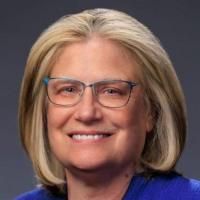Respiratory muscle training in late-onset Pompe disease: Results of a sham-controlled clinical trial.
Date
2020-11
Journal Title
Journal ISSN
Volume Title
Repository Usage Stats
views
downloads
Citation Stats
Abstract
To address progressive respiratory muscle weakness in late-onset Pompe disease (LOPD), we developed a 12-week respiratory muscle training (RMT) program. In this exploratory, double-blind, randomized control trial, 22 adults with LOPD were randomized to RMT or sham-RMT. The primary outcome was maximum inspiratory pressure (MIP). Secondary and exploratory outcomes included maximum expiratory pressure (MEP), peak cough flow, diaphragm ultrasound, polysomnography, patient-reported outcomes, and measures of gross motor function. MIP increased 7.6 cmH2O (15.9) in the treatment group and 2.7 cmH2O (7.6) in the control group (P = 0.4670). MEP increased 14.0 cmH2O (25.9) in the treatment group and 0.0 cmH2O (12.0) in the control group (P = 0.1854). The only statistically significant differences in secondary/exploratory outcomes were improvements in time to climb 4 steps (P = 0.0346) and daytime sleepiness (P = 0.0160). The magnitude of changes in MIP and MEP in the treatment group were consistent with our pilot findings but did not achieve statistical significance in comparison to controls. Explanations for this include inadequate power and baseline differences in subject characteristics between groups. Additionally, control group subjects appeared to exhibit an active response to sham-RMT and therefore sham-RMT may not be an optimal control condition for RMT in LOPD.
Type
Department
Description
Provenance
Subjects
Citation
Permalink
Published Version (Please cite this version)
Publication Info
Jones, Harrison N, Maragatha Kuchibhatla, Kelly D Crisp, Lisa D Hobson-Webb, Laura Case, Milisa T Batten, Jill A Marcus, Richard M Kravitz, et al. (2020). Respiratory muscle training in late-onset Pompe disease: Results of a sham-controlled clinical trial. Neuromuscular disorders : NMD, 30(11). pp. 904–914. 10.1016/j.nmd.2020.09.023 Retrieved from https://hdl.handle.net/10161/27298.
This is constructed from limited available data and may be imprecise. To cite this article, please review & use the official citation provided by the journal.
Collections
Scholars@Duke

Harrison N. Jones

Maragatha Kuchibhatla
Statistical research methodology, analysis of repeated measurements, latent growth curve models, latent class growth models, classification and regression trees,
designing clinical trials, designing clinical trials in psychiatry -- both treatment and non-treatment
trials in various comorbid populations.

Lisa Deneen Hobson-Webb
Trained in neuromuscular medicine, my clinical career has focused on the care of patients with genetically mediated neuromuscular disorders, rare peripheral neuropathies, and immune-mediated nerve and muscle disorders and performing high quality electrodiagnostic testing (nerve conduction studies/electromyography). As a researcher, the core aim of my work is applying high resolution ultrasound in the care of patients with neuromuscular diseases. My early work focused on peripheral nerve and is now moving toward muscle imaging. My current research includes muscle ultrasound in late onset Pompe disease and peripheral nerve imaging in acute inflammatory demyelinating radiculoneuropathy. Since 2016, I have collaborated with Dr. Kathryn Nightingale’s biomedical engineering laboratory on applying shear wave imaging to diseases of the nerve and muscle. I am interested in clinical trials for neuromuscular disorders and novel technologies for diagnosing and monitoring neuromuscular disease.

Laura Elizabeth Case
Laura E Case, PT, DPT, MS, PhD, PCS, C/NDT is a board-certified clinical specialist in pediatric physical therapy. She has dedicated her career to teaching, research in childhood-onset neuromusculoskeletal disorders, and to the lifelong treatment of people with childhood-onset neurological and neuromuscular disorders such as cerebral palsy, traumatic brain injury, Duchenne muscular dystrophy, spinal muscular atrophy, Pompe disease, myelodysplasia, juvenile rheumatoid arthritis, and brachial plexus injury.
She has been involved in numerous clinical trials for the treatment of disorders including Pompe disease and other metabolic disorders, cerebral palsy, Duchenne muscular dystrophy, and spinal muscular atrophy. Dr. Case has participated in the development of international guidelines for the management of Duchenne muscular dystrophy, Pompe disease, and other glycogen storage diseases.
She teaches and consults internationally, has worked on a number of Center for Disease Control (CDC) task forces, has served on numerous committees and task forces in the pediatric section of APTA, served two terms as NC State Representative to the APTA Section on Pediatrics, and is a member of the North American Pompe Registry Board of Advisors.

Priya Sunil Kishnani
RESEARCH INTERESTS
A multidisciplinary approach to care of individuals with genetic disorders in conjunction with clinical and bench research that contributes to:
1) An understanding of the natural history and delineation of long term complications of genetic disorders with a special focus on liver Glycogen storage disorders, lysosomal disorders with a special focus on Pompe disease, Down syndrome and hypophosphatasia
2) ) The development of new therapies such as AAV gene therapy, enzyme therapy, small molecule and other approaches for genetic disorders through translational research
3) The development and execution of large multicenter trials to confirm safety and efficacy of potential therapies
4) Role of antibodies/immune response in patients on therapeutic proteins and AAV gene therapy
. Glycogen Storage Disease (GSD): We are actively following subjects with all types of Glycogen Storage Disease, with particular emphasis on types I, II, III, IV, VI and IX. The goal of the treatment team is to better determine the clinical phenotype and long term complications of these diseases. Attention to disease manifestations observed in adulthood, such as adenomas and risk for HCC, is of paramount importance in monitoring and treating these chronic illnesses. We are establishing clinical algorithms for managing adenomas, and the overall management of these patients including cardiac, bone, muscle and liver issues. A special focus is biomarker discovery, an Omics approach including metabolomics and immune phenotyping. We are working on AAV gene therapy for several hepatic GSDs
.Lysosomal Storage Disease: The Duke Lysosomal Storage Disease (LSD) treatment center follows and treats patients with Pompe, Gaucher, Fabry, Mucopolysaccharidosis, Niemann Pick, LAL-D and other LSD's. The Duke Metabolism Clinical Research Team is exploring many aspects of enzyme replacement therapy (ERT), including impact on different systems, differential response, and long term effects. Other symptomatic and treatment interventions for this category of diseases are also being explored in the context of clinical care.
. Pompe Disease: The care team has extensive experience in the care of infants and adults with Pompe disease and was instrumental in conducting clinical trials and the bench to bedside work that led to the 2006 FDA approval of alglucosidase alfa, the first treatment for this devastating disease. We are currently focusing on role of antibodies/immune response on patient outcome and role of immune modulation/immune suppression as an adjunct to ERT. Our team is also working on AAV gene therapy for Pompe disease. A focus is on newborn screening (NBS) and understanding the clinical phenotype and management approaches for babies identified via NBS
. Hypophosphatasia: We follow a large cohort of patients with HPP. The goal is to understand the features of the disease beyond bone disease, development of biomarkers, role of ERT and immune responses in HPP
. Neuromuscular disorders: We are collaborating with neurologists, cardiologists and neuromuscular physicians to serve as a treatment site for clinical trials in these diseases. We are currently involved in trials of DMD and are working closely on setting up collaborations for studies in SMA.
Unless otherwise indicated, scholarly articles published by Duke faculty members are made available here with a CC-BY-NC (Creative Commons Attribution Non-Commercial) license, as enabled by the Duke Open Access Policy. If you wish to use the materials in ways not already permitted under CC-BY-NC, please consult the copyright owner. Other materials are made available here through the author’s grant of a non-exclusive license to make their work openly accessible.
